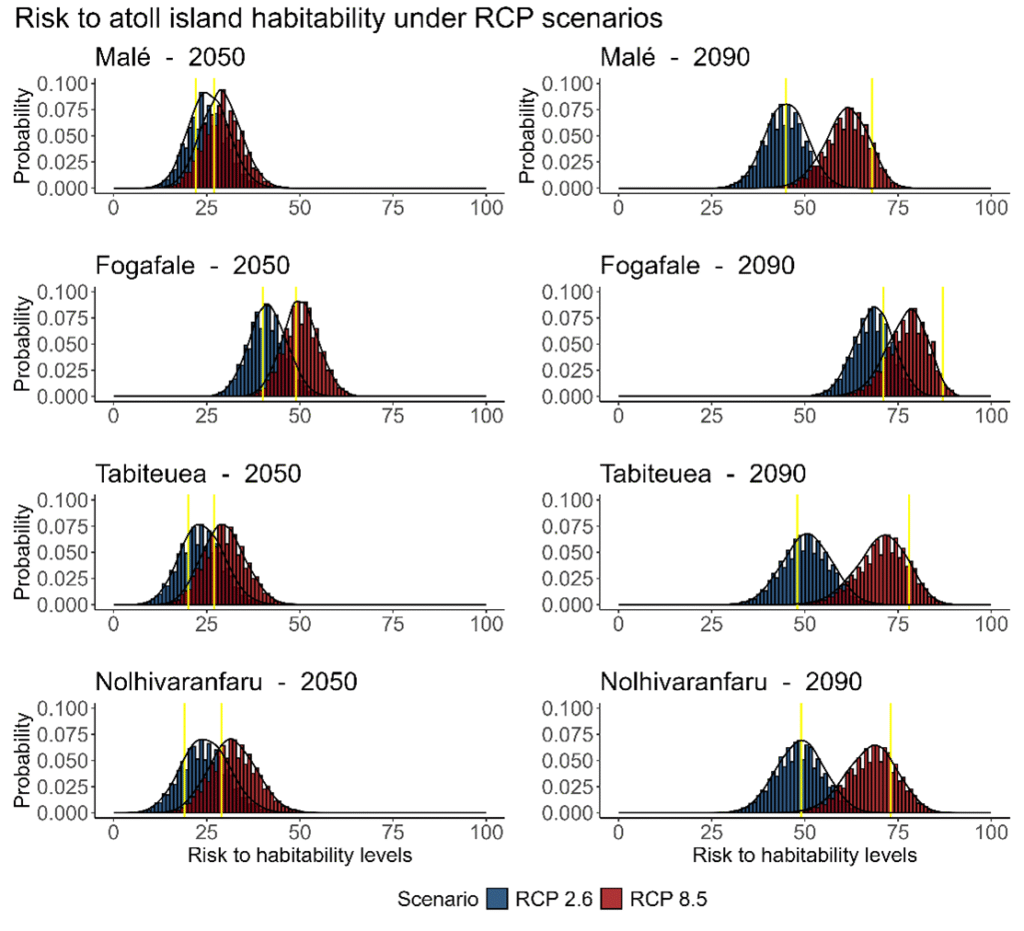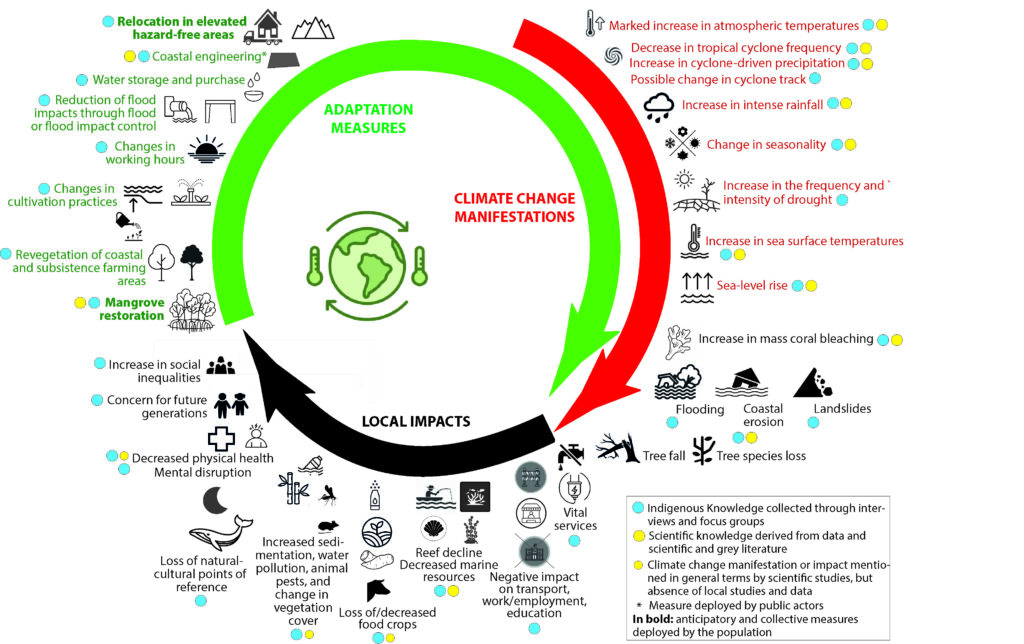Assessing the future habitability of the atolls (WP1, WP3, WP4 ; PhD of Mirna BADILLO, BRGM, LIENSs)
Badillo-Interiano, M., Rohmer, J., Le Cozannet, G., and Duvat, V. Assessing atoll island future habitability in the context of climate change using Bayesian networks, EGUsphere [preprint], https://doi.org/10.5194/egusphere-2024-3884, 2025.
Atoll islands are threatened by multiple climate change impacts, such as sea-level rise, extreme sea-level events, ocean warming, and acidification. A recent approach to assessing climate change risk to these islands is to use multi-criteria expert judgment methods. These approaches can serve as a basis for the development of Bayesian Networks (BNs) 10 integrating expert knowledge and uncertainties to perform climate risk assessments. Here, we use the multi-criteria expert-based assessment of Duvat et al. (2021), who assessed future risk to habitability for four Indian and Pacific Oceans’ atoll islands, in order to discuss the advantages and limitations of the BN model. Advantages of the approach include the explicit treatment of uncertainties and the possibility to query expert knowledge in a non-trivial manner. For example, expert knowledge can be used to assess risks to habitability and future uncertainties and to explore inverse problems such as which 15 drivers can exceed specific risk thresholds. Our work suggests that BN, though requiring a certain level of implementation expertise, could be used to assess climate change risk and support climate adaptation.

Probability of the risk to habitability under the RCP 2.6 and RCP 8.5 scenarios in 2050 and 2090 for the four islands. In 2050, Malé, Tabiteuea, and Nolhivaranfaru show low to moderate risk, slightly higher under the RCP 8.5. In contrast, the risk to habitability is higher for Fogafale than for the other islands. In 2090, the risk remains low to moderate under RCP 2.6 except for Fongafale (moderate to high). In the RCP 8.5 scenario, all islands could experience moderate to high risk levels.
Study of the manifestations and impacts of climate change, and of the adaptation measures deployed on the ground in Touho, Northern Province, New Caledonia (WP1 ; LIENSs)
Duvat et al.,
Because scientific knowledge on the manifestations and impacts of climate change at the local level (here, Touho municipality) is relatively limited, it was decided to gather information by collecting Indigenous Knowledge. This work was based on close collaboration with local stakeholders (the Paicî-Cèmuhi customary area, municipality, the local environmental association, and tribes), which enabled the conduction of semi-structured interviews with key informants and the organization of focus groups.
The study confirmed a number of research hypotheses on the scientific and ethical importance of (re)valuing Indigenous Knowledge in climate change studies: (1) such an approach significantly improves our understanding of the impacts of climate change by anchoring it in history, while also contributing to the decolonization of science; (2) Indigenous knowledge is highly valuable for understanding climate change, as it reflects the highly developed observational skills of Indigenous Peoples and their experience of the climate and environment associated with their subsistence-based lifestyles; (3) it can reveal emerging risks that are not captured by conventional scientific methods.
Beyond this, this article proposes a collaborative approach to overcome existing ontological divides and thereby support the design of locally designed and led climate change adaptation.
Finally, it proposes the concept of “relational adaptation” to define adaptation in Indigenous communities: an adaptation process that places at the center of its concerns the strong relationships that populations maintain, on the one hand, with their lands and, on the other, with their communities on a transgenerational basis.
The figure below summarizes the results obtained, showing the importance of the Indigenous knowledge collected in informing the local manifestations of climate change (barely described to date by climate modeling science), its impacts (described only in a very general and uncontextualized manner by conventional scientific studies, and on a national rather than local basis), and the adaptation measures implemented in the territories.

